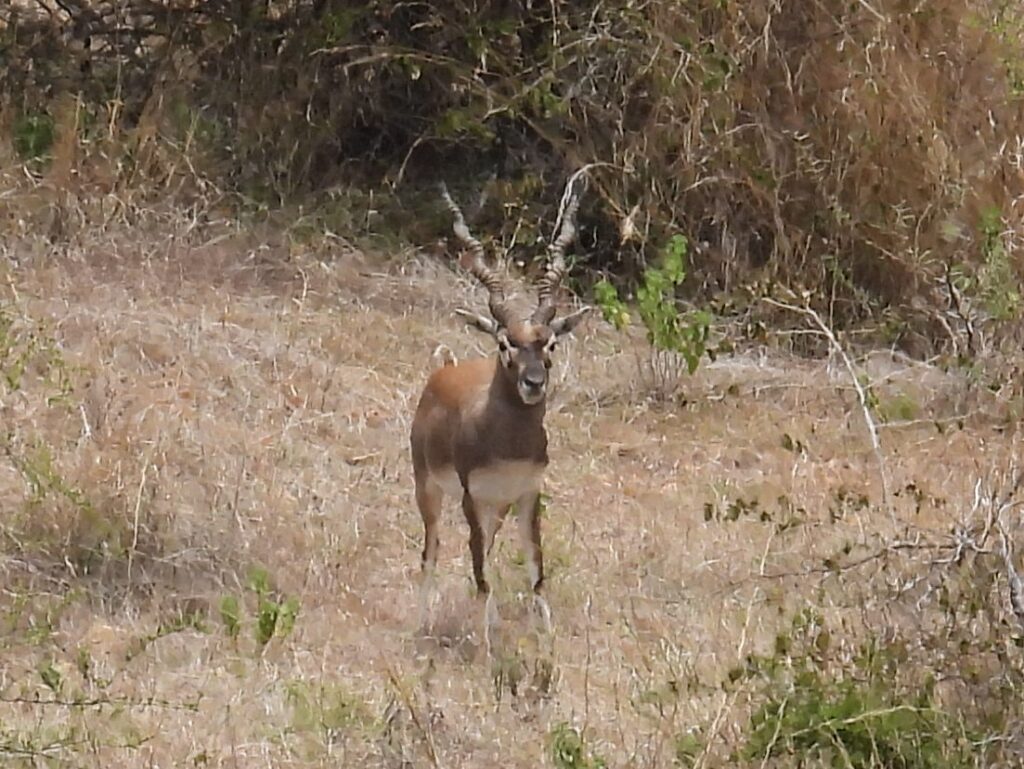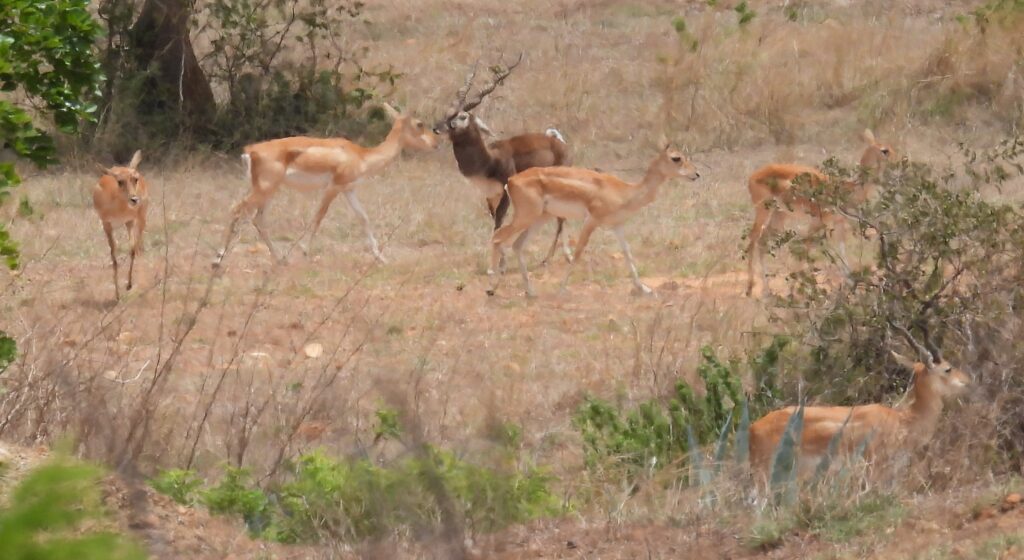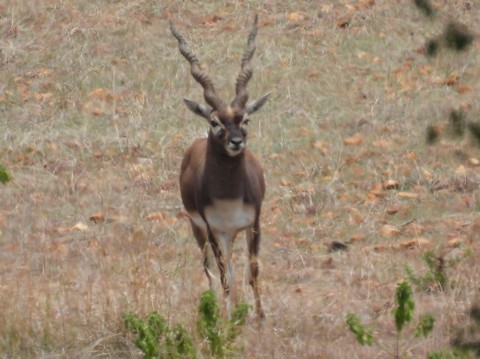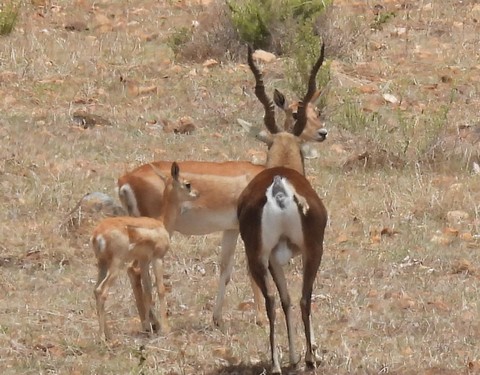
Meera Bhardwaj:
The blackbuck death toll in the Kittur Rani Chennamma Zoo, Belagavi, Karnataka has risen to 29. On Saturday night, one more animal succumbed to this fatal bacterial infection. Out of 38 blackbucks in the Belagavi Zoo, 29 blackbucks have died in the last five days and the rest nine have been isolated.
The blackbucks have reportedly died due to Haemorrhagic Septicaemia (HS) which is a highly fatal bacterial disease affecting livestock and is caused by Pasteurella multocida bacterium. In the recent times, the continuing death of wildlife in both protected areas and zoos of Karnataka demonstrate the urgent need for a “Separate Cadre of Wildlife Veterinary Doctors” in the state forest department.
ISOLATION OF REMAINING BLACKBUCKS
Speaking to Green Minute, N E Kranti, DCF, Belagavi Division said, “All directions and guidance given by the veterinary doctor attached to the Belagavi Zoo has been followed. Earlier, none of the blackbucks showed any symptoms of the bacterial disease. We have isolated and quarantined the rest nine blackbucks.”
The DCF added, “Based on the Veterinary Doctor’s advice, vaccination of blackbucks was not done as they are very delicate and fragile creatures. Further, a team of two experts from Institute of Animal Health and Veterinary Biologicals visited the Belagavi Zoo and have given all the guidance. The source of transmission of this deadly infection cannot be predicted as this bacterium is dormant and becomes active when a species is facing stress and cold conditions.”

HEALTHCARE AS MANDATED BY CZA
Blackbuck, like other antelope and bovids, are susceptible to this disease, especially under stressful environmental conditions such as the rainy season, overcrowding, or debilitation from poor nutrition. Usually, prevention involves annual vaccination in endemic areas before monsoon season, and also prompt isolation of the sick animals as mandated by Central Zoo Authority (CZA).
According to the CZA guidelines and related wildlife health regulations, vaccination against infectious diseases like Haemorrhagic Septicaemia (HS) is mandated for captive and zoo animals, including those in wildlife conservation settings.
Wildlife conservationists stress, “Vaccination against HS is part of routine preventive healthcare protocols to protect susceptible species from outbreaks. However, for free-ranging wild animals like blackbucks in natural habitats, HS vaccination is not specifically mandated by MOEF & CC but may be advised under certain captive or conflict mitigation scenarios to reduce disease risk.”
All zoos should vaccinate for contagious and infectious disease as a preventive measure. The other nine blackbucks at Belagavi Zoo are likely to die in the absence of proper nutrition and stress-free environment, an ex-director, IAH&VB and former member, expert, health committee, ZAK said.

The reasons for Blackbuck deaths maybe:
- Lack of proper nutrition
- Over-crowding leading to stress
- Preventive vaccination
- Lack of proper vet care & management
- Untrained forest staff
In the last five days, the toll of Blackbucks, a Schedule-I species under the Wildlife Protection Act, 1972 and of Least Concern under the IUCN List, has risen from 16 animals (on November 13) to 29 (on November 15) in the Kittur Rani Chenamma Zoo at Belagavi.
ACTIVISTS CALL FOR ACTION
Activists in Belagavi told Green Minute that this is not the first time such incidents of animal deaths have been reported from the Belagavi Zoo. They said, “There is utter neglect of animals at this zoo. Earlier too, animals like 2 tigers, a few deer, and a host of other species have died in this zoo due to lack of regular health checkups and proper care by the zoo staff.”
According to preliminary reports itself, it was confirmed that blackbucks had died due to an infectious disease. The Zoo staff said that all precautionary measures have been taken to prevent any other animals in the zoo from getting infected. According to the postmortem findings, blackbucks had died due to HS, a fatal bacterial disease. However, activists in Belagavi called for proper and regular health monitoring of wildlife in zoos and corrective measures for any lapses.

FOREST MINISTER ORDERS INQUIRY
Forest, Ecology & Environment Minister Eshwar Khandre has ordered a probe into the death of a huge number of blackbucks at Belagavi Zoo. The forest minister expressed his deep concern over the unnatural death of so many blackbucks at Kittur Rani Chennamma Zoo near Belagavi.
An expert committee has been formed to investigate whether these deer died of the disease after consuming contaminated water and food, or whether the disease was spread by domestic animals like livestock so that appropriate action can be taken in the future.
Eshwar Khandre has also emphasized that such incidents should not be repeated in the future and appropriate action be taken as per Central Zoo Authority rules if there has been any negligence on the part of the zoo staff.
PHOTO CREDIT: ALL PHOTOS BY MEERA BHARDWAJ)
